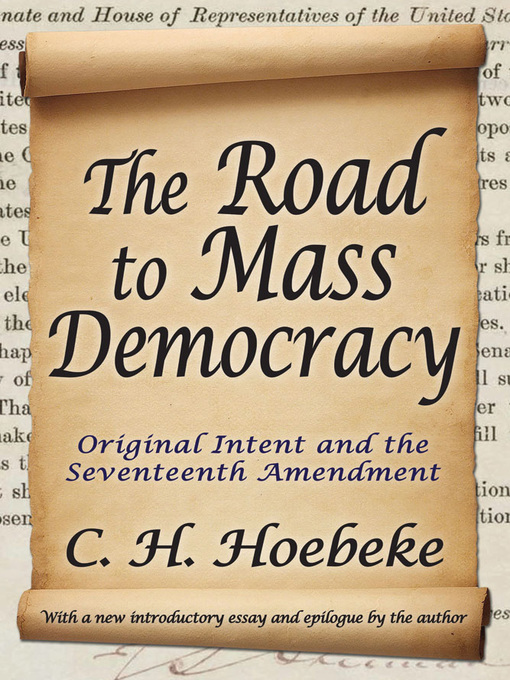- Listen! New Fiction
- Listen! New Non-Fiction
- Listen! New Fiction for Youth
- Most popular
- Available now
- Try something different
- See all
-
Description
-
Creators
-
Details

- C. H. Hoebeke - Author
- C. H. Hoebeke - Author of introduction, etc.
- C. H. Hoebeke - Other
Kindle Book
- Release date: September 15, 2014
OverDrive Read
- ISBN: 9781412838771
- Release date: September 15, 2014
EPUB ebook
- ISBN: 9781412838771
- File size: 618 KB
- Release date: September 15, 2014
Formats
Kindle Book
OverDrive Read
EPUB ebook
subjects
Languages
English
